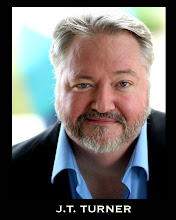I WOULD LOVE THIS POST TO GO VIRAL!
As you know this is an acting and performing blog. Advice from sagely, ancient me to actors, dancers, singers, speakers, musicians and performers of all ages. But many of my readers are parents of performers, performers with kids, or kids themselves.
The publication of a new book by Amy Chua called
The Battle Hymn of the Tiger Mother has caused quite a stir among parents. Ms. Chua gives the jist of her book in a recent Wall Street Journal article entitled "Why Chinese Mothers Are Superior". In it she mentions how she raised her own children, a regime that included the following formula for success; her girls were never allowed to:
• attend a sleepover
• have a playdate
• be in a school play
• complain about not being in a school play
• watch TV or play computer games
• choose their own extracurricular activities
• get any grade less than an A
• not be the No. 1 student in every subject except gym and drama
• play any instrument other than the piano or violin
• not play the piano or violin.
If you know me and my work with kids, you know i might have a thing or two to say about that. I want, instead of replying myself, to reproduce a reply by Ilyon Woo. I had the honor to work with Ilyon on a dramatic reading of her recent book. Her official credentials are: Ilyon Woo is the author of
The Great Divorce: A Nineteenth-Century Mother’s Extraordinary Fight Against Her Husband, the Shakers, and Her Times (Atlantic Monthly Press). She holds a Ph.D. in English from Columbia University and a B.A. in the Humanities from Yale College. Visit her website, www.ilyonwoo.com. Here is her article:
AN ASIAN FATHERS GIFT, PERMISSION TO FAIL
In high school I was a high-scoring, piano-performing, Asian- American “A” student, bound for the Ivy League—by way of failure, not success.
I did not always fit the type. In early high school, I was a “B” student, with one steady A-minus in English, not math. In fact, math was my worst subject. In ninth-grade algebra, I regularly came home with Cs and even Ds. It was not for the lack of trying. I labored over the assignments and logged many hours preparing for tests. I yearned to see the equations unravel neatly before me, the Xs and Ys bouncing about frantically on either side of the equal sign, until at last the jumble of numbers and letters settled smoothly into clear numerical values for X and Y. I cared intensely about math, as I did about almost everything—too much, my mother sometimes observed, not without sympathy. But somehow, those elegantly cascading equations never manifested before me, and more often than not, I was left in tears.
My math teacher, a popular man, seemed to find my questions amusing. “Have two glasses of wine and call me in the morning,” he would say with a dismissive wave, to the pleasure of the other students in the class. I learned to keep my questions to myself, or to save them for after class.
Fortunately, I had much better support at home. This was the 1980s, when “Asian-American Whiz Kids” made the cover of Time Magazine. Asian-American parents were gaining notoriety as disciplinary task masters. My own parents, however, defied these stereotypes.
In postwar Korea, my father was pushed by his own parents to become a doctor. But he could not bring himself to dissect a cow, and though his family’s fortunes were riding on him, he quit medical school to become an architect. My mother was a piano prodigy who first soloed with an orchestra at age 11 and performed at Carnegie Hall at 17. Far from pushing me to play the piano, she actively discouraged it, and when she finally relented, found a teacher other than herself to supervise me. My parents’ reaction as I struggled with algebra was not to tell me they knew I could do better, but to encourage me to look more broadly at things, and to listen hard to what I had to say.
I survived algebra with a C-plus, but I was scarred enough by the experience that I insisted on taking a summer math class to prepare myself for pre-calculus the following year. That I had a better teacher did not seem to matter: Letters and numbers stuck together stubbornly and refused to be solved. Very quickly I despaired, until my father jolted me with a question.
“What would happen,” he asked me quietly, “if you failed?”
I had no words to answer: “I’d… get a bad grade,” I stammered. And then what? My transcript would be ruined, I would not get into college?
My father shrugged. “So what? Is that the end of the world?”
My father has seen a lot in life. He fled North Korea as a child and survived the Korean War. At age 12 he left home to study, boarding with other families and, later, supporting himself as a tutor. He immigrated to the U.S. with nothing. His gaze reflects the breadth of his experience: bright, direct and compassionate. By nature, he is a prankster and loves a joke, but I knew in this moment that he was absolutely serious. Then mischief set in.
“Why don’t you try it?” He dared.
I didn’t understand.
“Why don’t you try and fail?”
In that moment, though I would not realize it until later, my father set me free. It had simply never occurred to me that it would be OK not to do well. My caring about a subject had become entwined with the desire to master it—as tangled as the equations that I could not solve—and finally, as the variables fell to either side of the equal sign, the problem resolved itself.
I failed that class—or got a D, I honestly can’t remember. My father was right, it was not the the end of the world. And it’s with that failure, when I stopped trying so hard and caring too much, that my grades began to soar—all of them, including math.
Twenty years later, I am certain that had my parents reacted differently, had they extorted or threatened me or told me that they were ashamed of my poor performance, I would have been crushed. In the years to come, as I attended one Ivy League university and taught at another, I came to know too many students who had been scarred by this kind of parenting. Fortunately, I had the opportunity to pass on my father’s wisdom, anecdotally, at least.
When I was a graduate student, teaching undergraduate writing and literature, I had many students come to my office hours. A number of them were Asian-American. They came to me because they had never had an Asian teacher before and were curious, and because they felt that I understood where they were coming from and the kinds of pressures they faced, especially parental ones.
I spoke to some of these students about my father’s words about failure. One of them marveled, “Wow, my dad would never in a million years say that to me,” shaking his head and dismissing the possibility. But I could see that the message got through, and that he, too, felt a bit more free. (REPRINTED WITH PERMISSION FROM ILYON WOO).
The theater is often a place where people find acceptance, and often, a family. It is sad that for the sake of a guaranteed paycheck, you would forfeit a childs opportunity to grow, explore, and thrive perhaps at something that speaks to them in thier soul. Who knows what opportunities and dreams would be missed under Amy Chua's method of parenting. Of course discipline is important, structure is important, but as in all things moderation.
Feel free to pass this around!
THE ACTORS SENSEI












